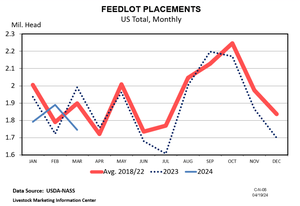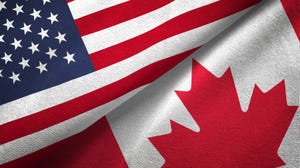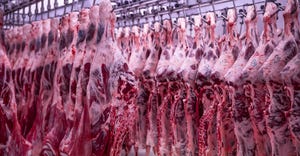Remember country-of-origin labeling (COOL), that ill-conceived notion turned into a burdensome but toothless law?
May 31, 2011

Remember country-of-origin labeling (COOL), that ill-conceived notion turned into a burdensome but toothless law?
The World Trade Organization (WTO) has sided with Canada and Mexico in those nations' complaint against the U.S.; basically that COOL violates WTO rules on trade by unfairly discriminating against cattle and beef imported into the U.S. that originates with those trading partners.
In its preliminary ruling, WTO determined that U.S. COOL requirements violate provisions of WTO’s agreement on Technical Barriers to Trade (TBT). The WTO ruled U.S. COOL requirements do not fulfill the stated U.S. objective of helping inform consumers of the origin of meat and, consequently, violate the TBT agreement.
By way of review, in 2008, the U.S. Congress passed the Food, Conservation and Energy Act, which imposed mandatory COOL for beef and other meats. Canada and Mexico initiated the WTO case six months after the act was passed.
Proponents of COOL declared that the law would cost next to nothing, while U.S. consumers would fall over themselves choosing U.S. product rather than that from Mexico and Canada. Less publicly, the notion was also that COOL would serve as a barrier to cattle imports from Canada and Mexico.
“Proponents of COOL have always believed that restricting imports of Mexican and/or Canadian feeder cattle will decrease the supply of feeder cattle in the U.S. and increase the price of U.S.-origin feeder cattle. In reality, reducing the number of cattle in the marketplace also reduces the infrastructure of the U.S. beef industry,” says Bill Donald, a Montana rancher serving as president of the National Cattlemen’s Beef Association (NCBA). “The ultimate result of such an action is that the value of all feeder cattle in Mexico, the U.S. and Canada are reduced. We all lose. The truth is, in this global economy, a rising tide floats all boats. Shrinking the size and scope of our industry only serves to cripple us for the future.”
Opponents of COOL – including NCBA and other mainstream livestock organizations – said it would cost a bundle and would make no difference with consumers other than confusing them. Besides which, they pointed out, the law as written, without an effective industry-wide livestock ID and trace-back program, was meaningless.
“This ruling is unfortunate for the U.S. government but the consequences of a poor decision have been revealed. We fully support WTO’s preliminary ruling,” Donald says. “It's also very important to note that this ruling is very much preliminary and all of the details are not yet known.”
WTO will reportedly make the ruling public sometime in September. The U.S. will then have two months to decide whether to appeal the ruling.
About the Author(s)
You May Also Like





